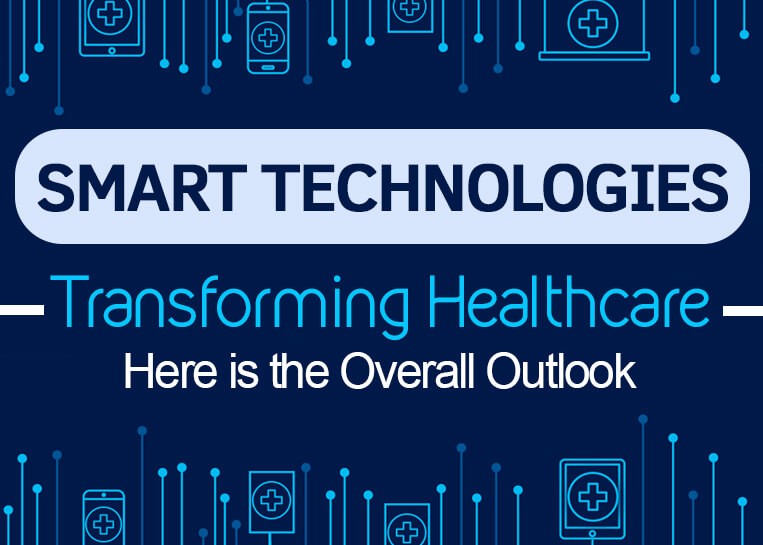
Infographic Content:
Technology has made way for smart thinking. Unlike other industries, even healthcare providers are increasingly turning towards advanced technologies and Internet of Things for improving care services. That is why by 2020, it is expected that Global healthcare spending on smart technologies will reach $8.7 trillion.
Attributes of Smart Healthcare
- Timely delivery of care at the right place to patients in need
- Use of technology to treat, diagnose, and deliver quality care
- Delivery of healthcare services to patients in remote places
- Making care facilities affordable to patients across the system
- Centralized system to store and protect patient data
- Keeping patients informed about their health conditions
Barriers Restricting Adoption of Smart Technologies in Healthcare
- Changing workplace and workforce
- Care settings is non-traditional
- Formation of data and disparate system
Top Issues that’s Impacting Use of Smart Healthcare Technologies
Increased Cost due to:
- Technological advances
- Rise in demand
- Changes in infrastructure
- Labor Availability
Reimbursement Hassles caused by:
- Decrease in funding
- More importance given to value than volume
What Healthcare Providers are Doing to Address these challenges?
- Joint ventures
- Improving efficiency and reducing cost
- Identifying new revenue and business sources
- Partnerships and alliances
- Business consolidations
- Introducing new healthcare models
- Alternative care settings
- Proper Networking
- Social platforms
Why Healthcare providers are shifting focus from volume to value?
- To improve health management services
- Ensure wellness of the population at large
- Address social issues that hinders healthcare
Role of Stakeholders in taking Care Beyond the Expected
- Deploying delivery models that are innovative
- Analysing data and population health trends
- Offer value-based care
- Be ready to incur costs
How are they doing it?
- Automation
- Streamlining workflow
- Changing job roles
- Patient support
Tools Stakeholders Use to offer Quality Care
- Wearable devices
- mHealth
- Analytics
- Artificial intelligence
Additional Issues for Stakeholders in Implementing Smart Healthcare
- Cyber security threats
- Data reliability and ownership
- Data monetization
- Confidentiality
Exponential technologies That Are Impacting Healthcare
- Robotic assistance
- Advanced diagnostics tools
- Nanotechnology
- 3D printing
- Biosensors and trackers
- Synthetic biology
Future potentiality of Smart Tech in Healthcare
- Telehealth for remote delivery of care
- IoT application for extended reach of care facilities
- Use of robotic limbs to perform surgeries
- Voice recognition for virtual patient assistance











